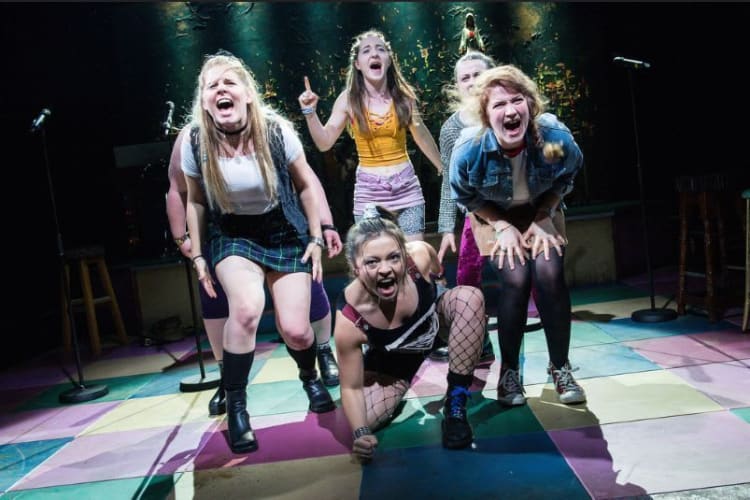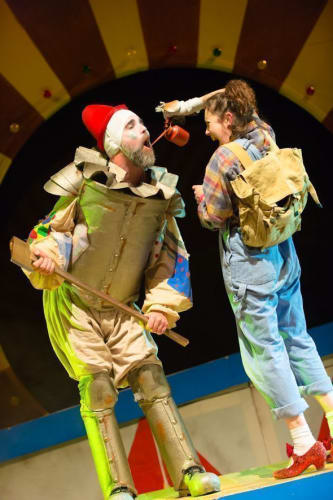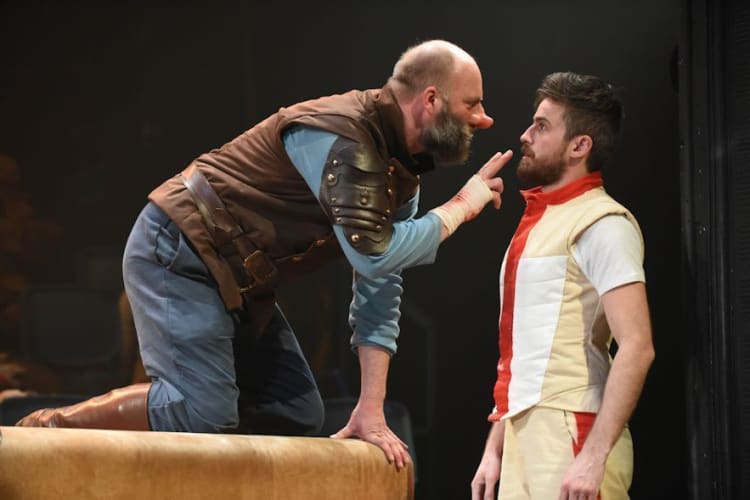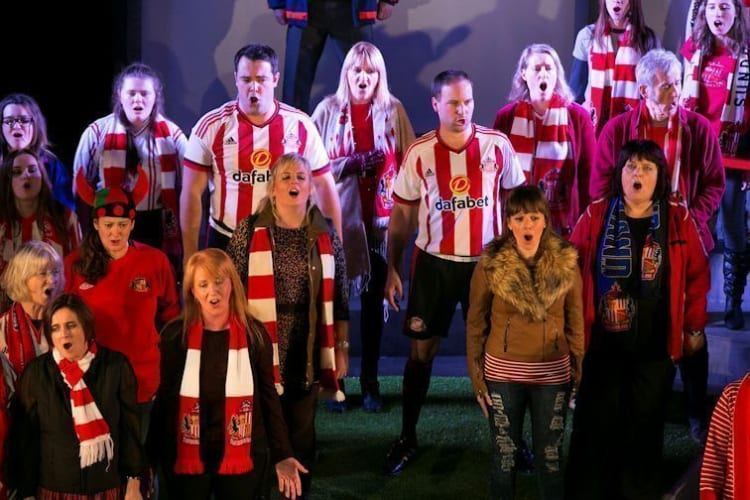The Producing Houses
We have a new producing theatre in the North East.
In these desperately straitened financial times—and make no mistake about it, they are desperately straitened in theatre—it is almost inconceivable that anyone should open a new venue, especially one which seats only 55 people. But that is exactly what Ali Pritchard did in 2015.
In 2013 he opened Alphabetti in a dilapidated room above the Dog and Parrot pub in Newcastle and that operated until September 2014 when the search began for a new home. Pritchard found a suitable space in the basement of an office block in the city centre, persuaded Arts Council to give some money, held a successful crowd-funding campaign to raise a further £2,500 and opened the venue in March.
Since then it has mounted its own productions and even runs a new play development evening, Write Back, bringing together writers, directors and actors, as well as acting as a receiving house for small-scale fringe-style shows from the region and beyond. It’s run on a shoestring—most of its income comes from the bar—but in spite of this is rapidly becoming an important part of the Newcastle theatre ecology.
For me its most impressive production of the year was The Rooms, three short one-woman plays responding to normally unseen parts of the theatre, written by Nina Berry, David Raynor and Michael Brown, all young writers.
But of course the two major producing houses in the region are Newcastle’s Live Theatre and Northern Stage (formerly Newcastle Playhouse and before that the University Theatre), both originating in the 70s although Live—as a venue, as distinct from a theatre company—dates from the mid-eighties.
The outstanding play at Live (and vying with The Curious Incident of the Dog in the Night-Time to be the most outstanding seen anywhere in the region) was the co-production with the National Theatre of Scotland of Lee Hall’s Our Ladies of Perpetual Succour in October.
There were three other in-house productions, in addition to works created by school children and works-in-progress by local writers. First up in April (and last, for it was revived in November) was Paddy Campbell’s Day of the Flymo which was written for the youth theatre and was produced, with great success for Campbell is an excellent writer, with three YT members and two professional actors.
Then followed a new play by Torben Betts, What Falls Apart, an example of an endangered species in the modern theatre—a political play which eschews agit-prop and rhetoric in favour of character exploration.
It was followed by a tribute to Julia Darling, the tenth anniversary of whose death fell this year. Fittingly, Live chose to celebrate her by presenting Rendezvous, five new plays inspired by various aspects of her work, written by women who either live in or have a connection to the region.
Northern Stage also celebrated Julia Darling by reviving her last play, Manifesto for a New City, in a fine production by young director Emma Roxburgh.
Earlier in the year NS co-produced an enjoyable production of Anthony Burgess’s version of Cyrano de Bergerac which featured young actors from the venue’s young professional development company NORTH. This was followed by a slightly disappointing version of The Tempest (co-produced with Oxford Playhouse and Improbable) and then the venue hit the heights with a wonderful new version of L Frank Baum’s The Wonderful Wizard of Oz over the Christmas period, perfect theatre for those who are not pantophiles!
The Customs House in South Shields presented three productions (in addition to its ever-popular panto) this year. One was a revival of Valerie Laws’s The Man and the Donkey, the story of the town’s World War I hero John Simpson Kirkpatrick. Another was the story of an infamous 1961 art theft with a local connection, Susan Wears’s The Duke in the Cupboard, a very assured first play, but the other was something quite different.
The play itself, Geordie the Musical, although very popular, was not particularly unusual, being a kind of regional jukebox musical, a show built around NE folks songs; what was different is the way it was financed. South Shields ex-pat Andy Bogle, now living in Texas, approached Customs House director Ray Spencer with a storyline and offered to fund the whole thing with all box-office receipts remaining with the theatre—a veritable lifeline for a theatre which, like so many others, was struggling financially. Needless to say it was very popular and attracted sell-out audiences. I would be very surprised if it isn’t revived in the next year or two.
The Queen’s Hall in Hexham continued its practice, inaugurated last year, of mounting small-scale, usually studio-style productions. The name BITESIZE Theatre applies not only to the length of the plays but also to the fact that tickets and a meal can be bought.
Further north in Northumberland Alnwick Playhouse continues to be the base for Northumberland Touring Theatre (NTC) which, in spite of the loss of its NPO status, continues to tour to (mainly) rural venues throughout the north and elsewhere.
In the south of the region, on Teesside, is ARC Stockton, an arts centre with a small main house theatre and a studio which, under its director Annabel Turpin, has been quietly working away developing new work, both theatre and spoken word, and sending it out on small but, for the companies concerned, very important regional tours. Some of the work so produced came from its regular ARCADE writers and some from companies which were given space and time to develop their work.
Which provides a nice cue to segue to our next subject, the region’s non-building-based producing companies.




